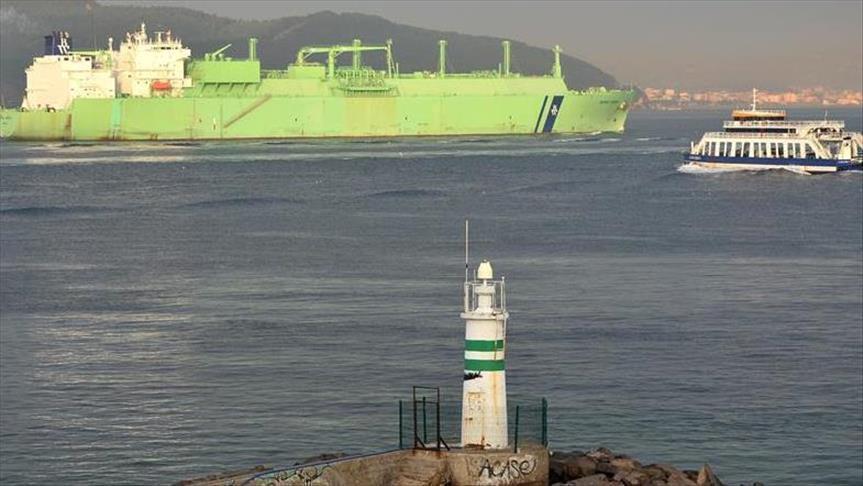Having increased by 60% in 2022 from the previous year, Europe’s imports of Liquefied Natural Gas (LNG) in 2023 will depend on many factors including weather conditions and how Europe will respond to the ongoing conflict in Ukraine, according to an analyst for Europe at the Institute for Energy Economics and Financial Analysis (IEEFA).
Falling Russian gas supplies was one factor leading to a rise in the EU’s LNG imports, but it wasn’t the only one, Ana Maria Jaller-Makarewicz told Anadolu in an exclusive interview.
For example, according to Jaller-Makarewicz, unusually high temperatures, a lack of rainfall and declining water levels in reservoirs all led to a reduction in electricity production in several EU countries.
She warned that temperatures of some rivers in France were too high to cool the nuclear plants, which forced them to reduce output.
Coal power production was also negatively impacted, Jaller-Makarewicz said, pointing to falling Rhine River water level in Germany, which makes shipping along the river more difficult.
She said that the amount of imported LNG this year would greatly depend on the weather, on price, on government policies, on the mechanisms put in place to reduce gas consumption and on the output of renewables.
Jaller-Makarewicz noted that gas consumption in Europe has already been reduced due to demand destruction, energy efficiency, increase in renewable generation, replacement of gas boilers for heat pumps among others.
‘Based on Eurostat data, it’s clear that the gas consumption is already lower than the average of the previous five years. Regarding renewables, for example the EU solar market grew in 2022 and it’s expected to continue that way,’ she said.
– Gas prices are lower compared to summer months
Jaller-Makarewicz underlined that LNG is generally more expensive than pipe gas, however, as it is mainly the natural gas which is priced on the basis of demand and supply, it has a greater effect on the economies of European countries.
‘The energy crisis has shown how volatile the gas market is and how dependent it is on weather, geopolitical issues, supply and demand factors, competing fuels, etc. After reaching a peak in August 2022, global gas prices in early January 2023 moved lower due to mild winter temperatures,’ she said.
She noted that piped gas from Russia, the third largest exporter of LNG to Europe in 2022, was mainly replaced by US LNG, followed by LNG from Qatar.
Jaller-Makarewicz recalled that in 2021, the EU imported about 155 billion cubic meters (bcm) of natural gas from Russia, while Türkiye and the UK imported around 16 bcm and 3 bcm, respectively.
‘LNG has been replacing Russian pipe gas but I don’t think LNG will replace all the volumes of gas that Russia used to export before the war. LNG imports represented around 20% of all the gas consumption in the EU at the beginning of the year and in the later months have reached more than 60%. But at the same time gas consumption has been decreasing,’ she explained.
‘Gas-to-power generation increased across the continent in 2022, partly to compensate for some of these factors and also due to the Iberian exception, a price cap that applies exclusively to gas for power generation in Spain and Portugal, among others,’ she said.
‘LNG imports from the US increased by 143%, and imports from Qatar increased by 23%,’ she said, adding that in 2022, France was the top importer of LNG from both the US and Russia, while the UK was the top importer of LNG from Qatar.
While Russian piped gas supplies to the EU decreased in 2022, some countries have continued importing Russian LNG, working against a commonly agreed goal of ensuring energy security and cutting dependence from Russian sources. Imports of Russian LNG increased by 12% in 2022 compared to 2021.
The top importers of Russian LNG in 2022 were France, Spain, Belgium and the Netherlands. France, Spain and Belgium significantly increased imports of Russian LNG, by 55% in total.
By contrast, Croatia, Lithuania, Portugal, Sweden and the UK sharply reduced their imports of Russian LNG in 2022.

